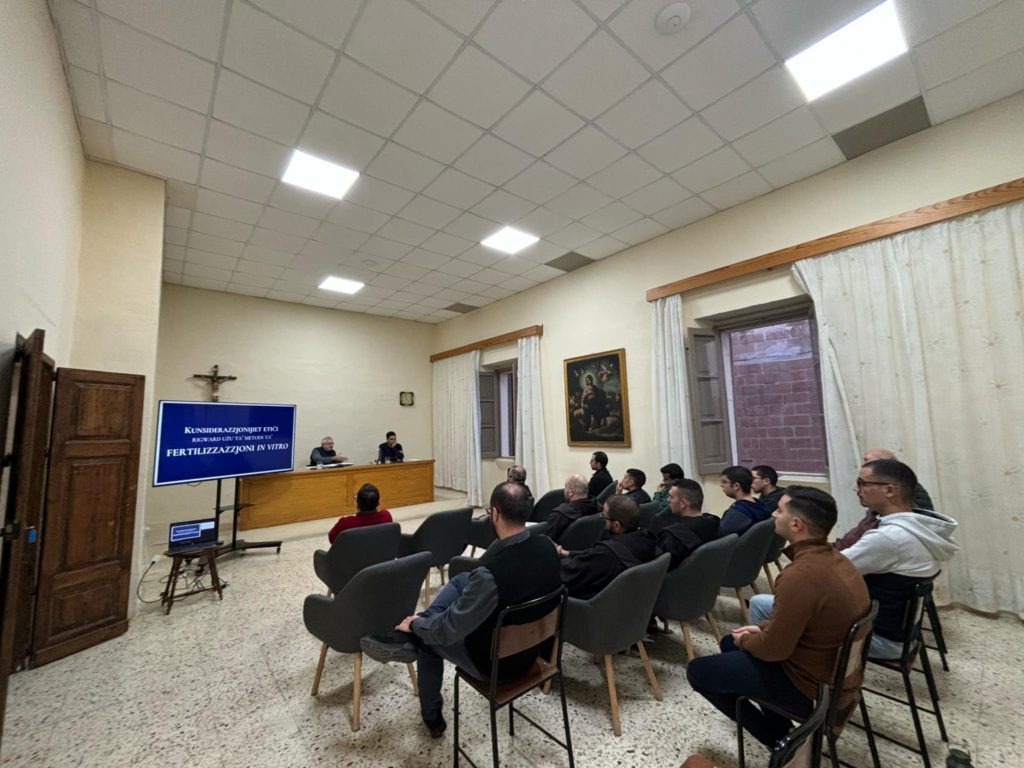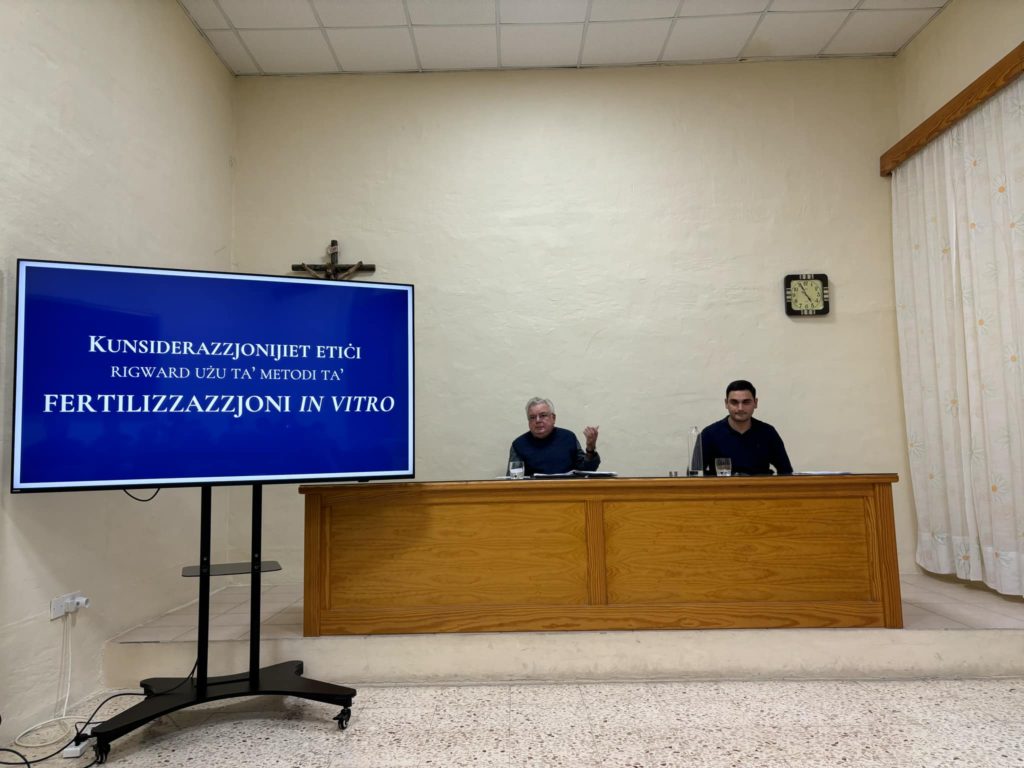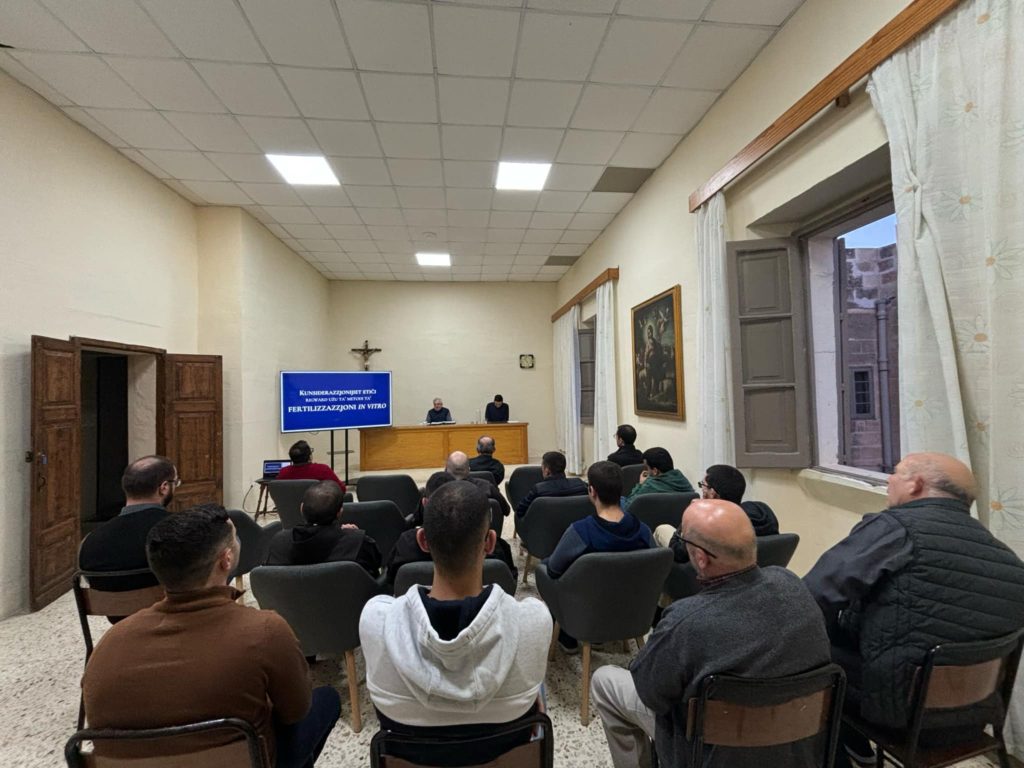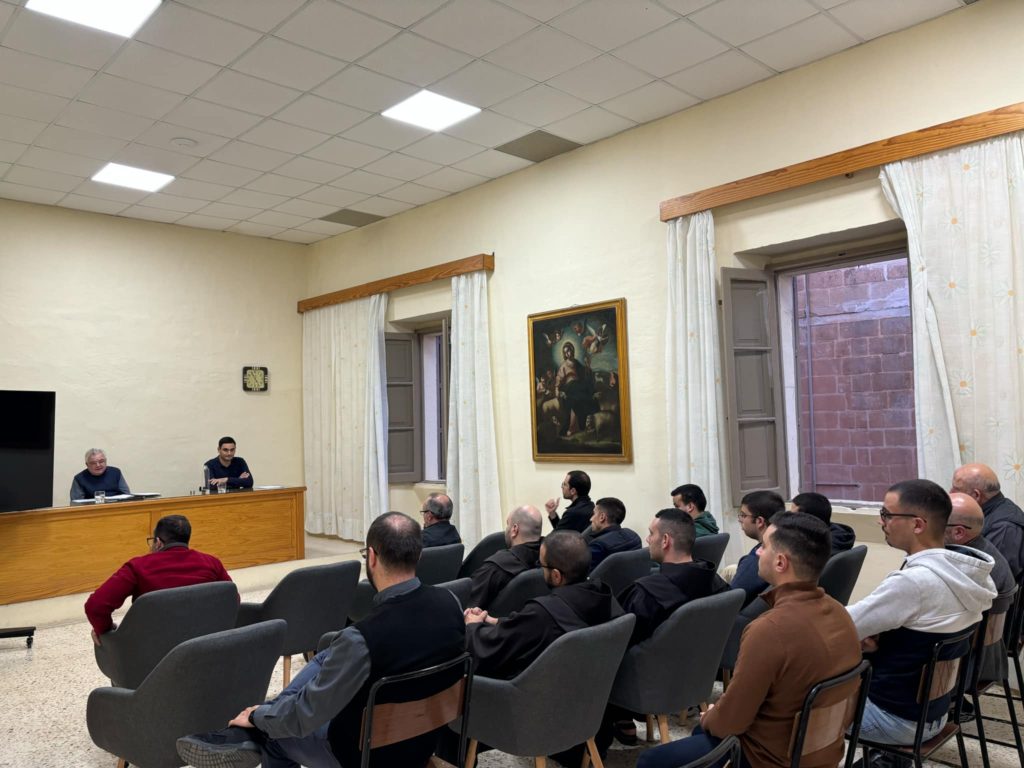This week, on Wednesday 27 November at 4.00pm, a moral case study regarding the using of IVF methods, was held at the Seminary Conference Room. The case was presented by the seventh-year seminarian Samuel Aquilina, as a part of the course ‘The inviolability of human life’ taught at the Seminary’s theological institute by Can George Frendo. The case study was attended by the seminarians, several of the formators, lecturers and other members of the Gozitan clergy.
The case was about a couple who after six years of marriage was unable to conceive children. The couple were presented with IVF as a possible solution for their difficulty, by the medical team at the hospital. In front of this proposal, the couple consulted a priest to get to understand better the Church’s teaching with regards to IVF before making their decision.
After the case was outlined, Aquilina presented his research as a response, in three parts. In the first part he highlighted some important definitions and explained the basic process involved in IVF procedures. He proceeded by demonstrating the Church’s teaching about procreation, making reference to three magisterial documents: Humanae vitae (1968), Donum vitae (1987) and Dignitatis personae (2008). In the final part of the work, in light of the Magisterium’s teaching, Aquilina showed which aspects of IVF are problematic.
The two main values around which the presentation revolved were: (1) the unconditional respect to every human being from the beginning of his existence, and (2) the specifically human character of the personal act which transmits life. These two fundamental principles are outlined in both of the Congregation for the Doctrine of Faith’s instructions: Donum vitae and Dignitatis personae.
Following the presentation there was a brief discussion moderated by Canon Frendo.





